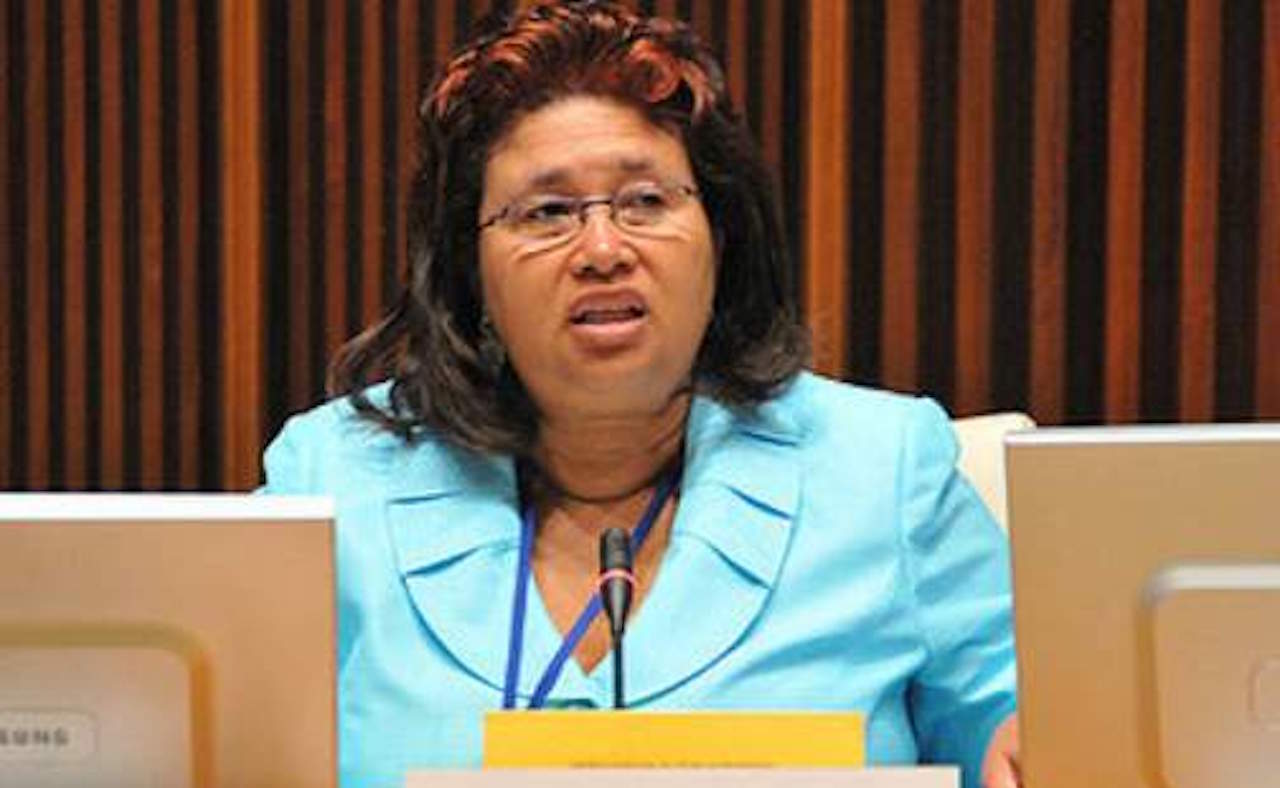A top regional health official is raising an alarm that there are concerted efforts by some in the Caribbean to dissuade people from taking the COVID-19 vaccine.
Expressing “shock and horror” at the level of false information still being spread regarding the pandemic in an “infodemic” of fake news, Executive Director of Caribbean Public Health Agency (CARPHA) Dr Joy St John complained that misinformation was a significant contributor to the existing vaccine hesitancy in the region.
Additionally, she disclosed that some family members, including elderly parents, had to hide and get vaccinated because they were being prevented by other family members from freely doing so.
“I know of people who had to hide to go to get their vaccine because they did not want any ‘noise in the house’,” St John told the 52nd Annual General Assembly of the Caribbean Broadcasting Union (CBU) on Tuesday.
Dr St John, who was a panelist during the morning session on the final day of the two-day online forum, disclosed that CARPHA had carried out a survey on vaccine hesitancy in member states, which is expected to be released at the end of this month.
“This is part of the reason we did the vaccine hesitancy survey, because we know that there is considerable confusion, not just because people have their own thoughts but there is a concerted campaign to discourage people from being vaccinated and to encourage them to stop, for example, their elderly parents,” she said.
“We have been plagued with the infodemic. It is an avalanche and it is not just the fact that the science is changing and there is new and correct information all the time. There has been a concerted effort to confuse people – fake news, downright misinformation,” she insisted.
The public health official said the forwarding of “foolish things” via WhatsApp was also contributing to vaccine hesitancy.
“It is a serious issue in the Caribbean,” she said.
“We are lucky we have been receiving vaccines, but for those countries that have vaccines, there is a serious concern about vaccine hesitancy.”
In Barbados, several individuals and groups have been pushing back against any notion of mandatory vaccination, insisting that there should be freedom of choice. Others have labelled the COVID-19 vaccines experimental, while some expressed distrust of the jabs.
Dr St John, who opted not to disclose the findings of the survey, said it was carried out to, among other things, find out the impact misinformation has had on people’s decision regarding COVID-19 vaccination.
Pointing out that the main medium for the spread of half-truths was social media, St John said CARPHA has been putting various measures in place to help prevent misinformation from getting through.
She told the CBU forum that media practitioners also had a very important role to play in stemming the spread of misinformation, warning that the sources of information should be vetted before dissemination.
“The media has a very important role, not just motivation, but countering dangerous groups, helping audience members to stay healthy and helping to reduce stigma towards people affected by COVID-19,” she added.
Stating that the impact of the pandemic on the region’s health system has been immense, St John said while CARPHA member states have been making every effort to achieve herd immunity against COVID-19, the new Delta variant is presenting more challenges.
Using Trinidad and Tobago as an example, she explained that one of the challenges there was that the majority of people who have been in intensive care or have died as a result of COVID-19, were unvaccinated.
“Even the partially vaccinated are in this representation. But the take-home message is that the fully vaccinated are protected. So, it is going to be very important that we use your good office to ensure that people understand that the right choice is to be fully vaccinated and the wrong choice is to listen to misinformation and to actively stop others from being vaccinated,” said Dr St John.
She added that in order to help with combatting vaccine hesitancy, it was important that employers first find out why some people were unsure about getting the jab and provide a forum for them to have their concerns addressed.
“You try to find out and you try to do one-on-ones with your most reluctant staff members. The one-on-one is usually with someone they trust, and that is something else we found out in the vaccine hesitancy survey. Who do they trust? They trust international health experts and organizations such as CARPHA and they also trust their local health providers.
“So, you try to create situations where even if it is not one-on-one, they have a chance to ask questions of whomever, and what is their preferred medium,” she explained.
(marlonmadden@barbadostoday.bb)




